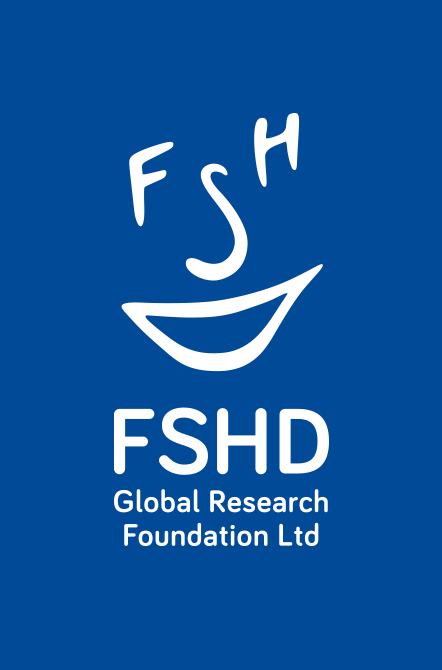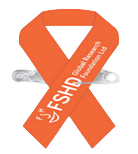GRANT 23a/b
Research Institution: KennedyKrieger Inst., Baltimore, MD & Concord Hospital, Sydney, NSW
Principle Investigator: Dr. Kathryn Wagner & Prof. Alastair Corbett
Type: Collaboration
Project title: “Clinical Study of Bone Health in FSHD”
Status: Active
Summary
As of February 24, 2016, enrollment has been completed at the Kennedy Krieger Institute. A total of fifty participants with FSHD (27 females and 23 males) have enrolled in this clinical study at the site.
For the USA site, the age of the participants in this cross-sectional study spans from 18 to 83 years old. The allele size of the D4Z4 portion on the 4q35 chromosome in the participants ranges from 11 to 35 kb, confirming the genetic diagnosis of FSHD.
All enrollees have undergone a DEXA (dual-energy x-ray absorptiometry) scan to assess bone mineral density and lean body mass. In addition, they have had blood collected to assess bone biomarkers, and have had muscle strength and timed function testing performed.
Data from the Concord, Australian site were received on January 31, 2016. Data was collected for 52 participants, 3 of whom were confirmed to not have FSHD through gene testing. These 3 participants will be excluded. Data for the remaining 49 participants will be included in this cross-sectional study.
We have started the process of merging and cleaning the two datasets. Once a final merged dataset is available, statistical analyses will be performed to determine the prevalence of osteoporosis, fractures, abnormal bone turnover, and association with the allele size and strength testing. Descriptive statistics and bivariate associations will be explored to summarize the status of bone health among this sample of 99 participants with FSHD.
PROGRESS REPORTS
August 2014
This research is being done to study bone health in individuals with Facioscapulohumeral muscular dystrophy (FSHD), at two sites, one in the USA and one in Australia.
FSHD is characterized by muscular weakness which can lead to increased risk of falls and possible serious injury. Low muscle mass and poor muscle strength can also affect bone mineral density which may lead to increased risk of fractures. One important question to be answered is, whether any increase in fractures is due to muscle weakness and associated loss of balance, or due to greater bone fragility in people affected with FSHD.
There are effective medications to increase bone mineral density. However, there are currently no medical guidelines for the screening or treatment of those affected with FSHD. Therefore, we would like to know if bone mineral density, in addition to lean body mass, are reduced in individuals with FSHD and to correlate these with leg muscle strength, timed muscle function tests, and results of blood tests in order to determine if bone health is reduced in FSHD.
Fifty people at each site (total of 100), with FSHD and of ages 18 years and above will be included in this study.
Update April 2015
As of April 1, 2015, forty-one participants with FSHD (24 females and 17 males) have enrolled in this clinical study at the Kennedy Krieger Institute. In this cross-sectional study the age of the participants span from 18 to 84 years old. The allele size of the D4Z4 portion on the 4q35 chromosome in the participants ranges from 11 to 35 kb, confirming the genetic diagnosis of FSHD. All of the enrollees have had a DEXA scan (dual-energy x-ray absorptiometry) to assess bone mineral density and lean body mass. In addition, they have had blood collected to assess bone biomarkers, and have had muscle strength and timed function testing. Enrollment will continue until 50 participants have entered the study. It is anticipated this milestone will be achieved in 2 months. Data analysis will be undertaken to determine the prevalence of osteoporosis, fractures, abnormal bone turnover, and any association with the D4Z4 size and strength testing. The study is registered on Clinicaltrials.gov (Identifier: NCT02413190).
Update August 2015
All 50 subjects have been enrolled at our site. In this cross-sectional study, 23 male and 27 female subjects with FSHD were consecutively enrolled from patient visits to the Center for Genetic Muscle Disorders. The age range of the participants was from 18 to 84 years old. 48 subjects were Caucasian, one was Asian and one was African American. 46 subjects were ambulatory and 4 were nonambulatory. 12 had sustained a fracture over the course of their lives. The allele size of the FSHD allele ranged from 11 to 35 kb.
All of the participants underwent a DEXA scan (dual-energy x-ray absorptiometry) to assess for bone mineral density and lean body mass. In addition, they had blood collected to assess for bone biomarkers, and had muscle strength and timed function testing.
The next stage of this study has begun in which data is being entered in an electronic database so that it can be analyzed by a statistician. Dr. Wagner and Dr. Corbett will meet in Sydney in September to review data from the US versus Australian sites and develop a plan for combined data analysis and publication.
Final Update February 2016
As of February 24, 2016, enrollment has been completed at the Kennedy Krieger Institute. A total of fifty participants with FSHD (27 females and 23 males) have enrolled in this clinical study at the site.
For the USA site, the age of the participants in this cross-sectional study spans from 18 to 83 years old. The allele size of the D4Z4 portion on the 4q35 chromosome in the participants ranges from 11 to 35 kb, confirming the genetic diagnosis of FSHD.
All enrollees have undergone a DEXA (dual-energy x-ray absorptiometry) scan to assess bone mineral density and lean body mass. In addition, they have had blood collected to assess bone biomarkers, and have had muscle strength and timed function testing performed.
Data from the Australian site was received on January 31, 2016. Data was collected for 52 participants, 3 of whom were confirmed to not have FSHD through gene testing. These 3 participants will be excluded. Data for the remaining 49 participants will be included in this cross-sectional study.
We have started the process of merging and cleaning the two datasets. Once a final merged dataset is available, statistical analyses will be performed to determine the prevalence of osteoporosis, fractures, abnormal bone turnover, and association with the allele size and strength testing. Descriptive statistics and bivariate associations will be explored to summarize the status of bone health among this sample of 99 participants with FSHD.




